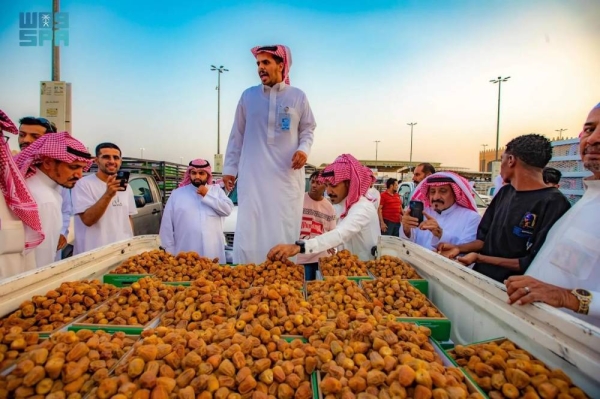The National Center for Palms and Dates, in partnership with the Ministry of Environment, Water, and Agriculture, has introduced a new Seasonal Markets System in Saudi Arabia. This electronic platform is mandatory for anyone looking to sell, buy, or market dates in seasonal markets. The goal of this system is to improve the efficiency and quality of market data across all regions of the Kingdom. By requiring registration, the system ensures that all transactions are recorded, financial dealings are safeguarded, and marketing service providers can be easily selected. Additionally, the system allows for real-time monitoring of sales, access to a wider range of markets, and viewing of average prices in wholesale date markets.
The importance of the Seasonal Markets System extends to achieving strategic goals set by the National Center for Palms and Dates. By enhancing the efficiency of seasonal date markets, the system aims to promote sustainable development in the palm and date sector through agricultural and marketing services. Farmers, marketers (service providers), and buyers stand to benefit from the system, as it improves sales methods, promotes good selling practices, invigorates date markets, attracts buyers, creates job opportunities, and offers financing solutions in collaboration with relevant entities.
Saudi Arabia is known for its vast date production, with over 36 million palm trees producing more than 1.6 million tons of dates annually. The country exports dates to 119 countries worldwide, generating over SR1.462 billion in revenue. To access seasonal date markets, registration in the Seasonal Markets System is mandatory. This requirement ensures the protection of all parties involved in transactions and boosts the competitiveness of the palm and date sector both locally and internationally.
The Seasonal Markets System will play a crucial role in regulating and organizing the trading of dates in seasonal markets in Saudi Arabia. By facilitating easy completion of sales and purchases, recording transactions, and selecting marketing service providers, the system aims to streamline the trading process and improve market efficiency. Real-time monitoring of sales, access to a broader range of markets, and viewing of average prices in wholesale date markets are some of the key features that the system offers to participants in the date industry.
In order to optimize the benefits of the Seasonal Markets System, the National Center for Palms and Dates emphasizes the importance of registration for farmers, marketers, and buyers. Through registration, participants can access a range of benefits such as improved sales methods, promotion of good selling practices, revitalization of date markets, attraction of buyers, creation of job opportunities, and provision of financing solutions in collaboration with relevant entities. This collaborative approach aims to enhance the overall efficiency and competitiveness of the palm and date sector in Saudi Arabia.
In conclusion, the Seasonal Markets System introduced by the National Center for Palms and Dates and the Ministry of Environment, Water, and Agriculture in Saudi Arabia is set to revolutionize the trading of dates in seasonal markets. By requiring registration for all participants, the system ensures transparency, efficiency, and protection for all parties involved. With the aim of enhancing sustainable development in the palm and date sector, the system offers a range of benefits to farmers, marketers, and buyers. With Saudi Arabia’s reputation as a leading date producer and exporter, the Seasonal Markets System is expected to further strengthen the country’s position in the global date market.


























